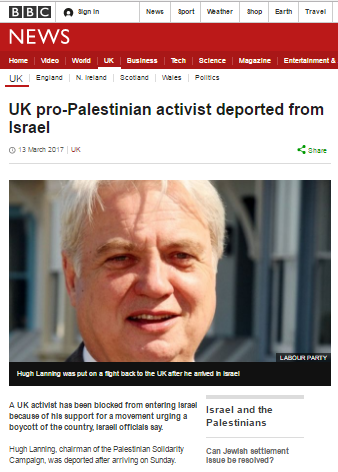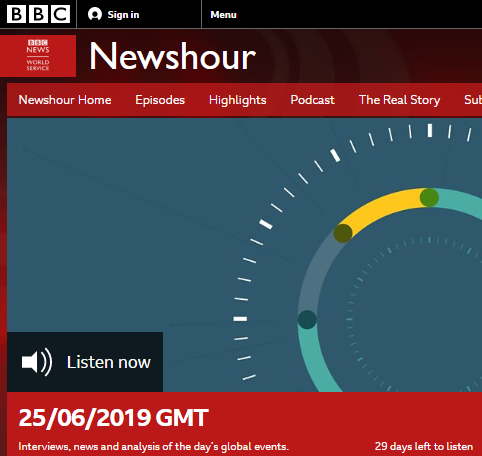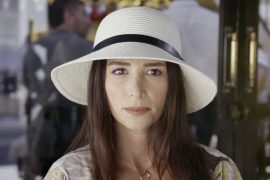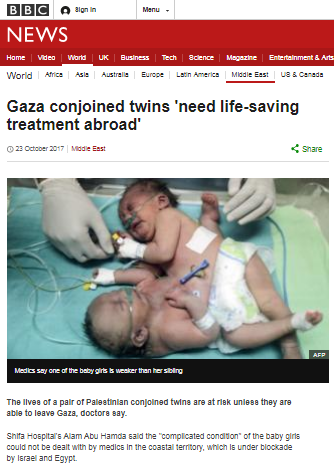Regular readers of these pages who happened to visit the Europe page of the BBC News website on January 23rd would not have been overly surprised to find the perpetrator of the January 9th terror attack on the Hyper Cacher supermarket in Paris, in which four people were murdered and fifteen others held hostage for hours, described as “[a]n Islamist militant”.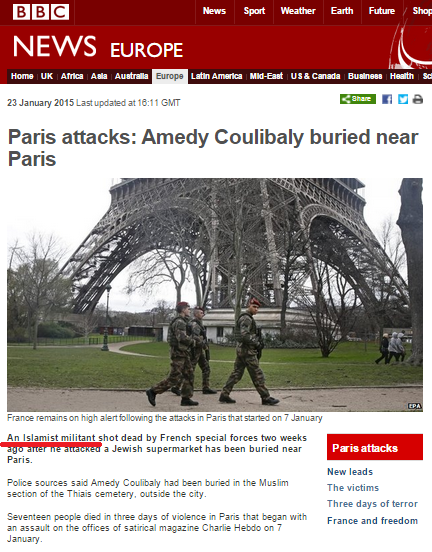
Via an article appearing two days later in The Independent, we learn that the BBC has decided that he and the perpetrators of the attack at the offices of the satirical magazine Charlie Hebdo two days beforehand will not be described by the corporation as terrorists.
“The Islamists who committed the Charlie Hebdo massacre in Paris should be not be described as “terrorists” by the BBC, a senior executive at the corporation has said.
Tarik Kafala, the head of BBC Arabic, the largest of the BBC’s non-English language news services, said the term “terrorist” was too “loaded” to describe the actions of the men who killed 12 people in the attack on the French satirical magazine. […]
“We try to avoid describing anyone as a terrorist or an act as being terrorist. What we try to do is to say that ‘two men killed 12 people in an attack on the office of a satirical magazine’. That’s enough, we know what that means and what it is.” ” [emphasis added]
As longtime readers will know, the claim appearing in bold above is simply not true. The BBC does indeed use the word terror and its derivatives in certain cases – particularly in reports on Northern Ireland. The term has also been used to describe incidents in Great Britain, Norway and Spain, among others. A report appearing on the BBC News website’s ‘London’ page just one day before the Independent article was published informed audiences – albeit in confusing grammatical style – that:
In the ‘through the looking glass’ world of the BBC, a UK-based organization which was proscribed by the British government on the basis of its engagement in the glorification of terrorism can be described as a “Terrorist organization” (with a capital T, no less) whilst other groups appearing on the same list of proscribed organisations but operating elsewhere are regularly described in BBC content in euphemistic terms such as “the Lebanese militant movement” or “the Palestinian Islamist militant group, Hamas“.
The Charlie Hebdo terrorists carried out an attack not only directed at the staff of that particular publication but also with the intent of sowing fear and self-censorship in the wider Western media. They sought to terrorise journalists – and Western society in general – into complying with their particular politico-religious demands just as terrorists of all stripes do the world over. Tarik Kafala’s claim that the correct terminology for those who gunned down seventeen people in cold blood is “loaded” means that the BBC cannot tell this story accurately and impartially to its audiences.
That fact will come as no surprise to anyone who has been monitoring the BBC’s inconsistent use of the word terror and its habit of hiding behind the smokescreen of “value judgements” it claims are implicit in that word’s use and may “raise doubts about our impartiality”.
But when shooting attacks by a far-right extremist in Norway do get the BBC editorial thumbs-up for description as “terror attacks” and “terrorist activity” is used to describe the actions of members of an armed group in Northern Ireland, it is of course difficult to conceive of any reason for the refusal to accurately name terrorism elsewhere which does not stem from a “value judgement” regarding the perpetrators – or their victims – and impossible to see how the BBC can make any honest claim to cover the subject of terrorism with impartiality.
Related Articles:


